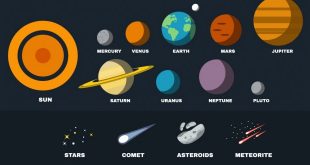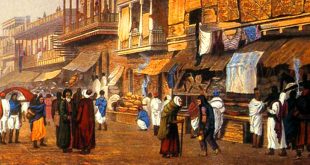Question: Distinguish – (i) Tectonic and gradational forces, (ii) Erosion and deposition, (iii) Mountain range and mountain system. Answer: (i) Tectonic and gradational: Tectonic: Tectonic forces originate from within the earth. It create irregularities on the surface of the earth. Tectonic or the internal force is responsible for the upliftment and subsidence of the …
Read More »NCERT 6th Class (CBSE) Social Science: Maps and Map Reading
Question: What is the importance of a scale on a map? Answer: Scale is defined as a relation or ratio of the distance between the same two place on the ground. For example – if 10 km on the ground is shown by 1 cm on a map, the then the …
Read More »NCERT 6th Class (CBSE) Social Science: Rotation and Revolution
Question: What is a leap year? Answer: One revolution takes 365 1/4 days 1/4 day is equal to 6 hours. We take 365 days as a single year and the 1/4 day of four consecutive years is added to the month of February in the fourth year. Thus, every fourth …
Read More »NCERT 7th Class (CBSE) Science: Light
Question: What do you means by lateral inversion? Answer: Lateral inversion means left looks like right and right looks like left in a mirror. Question: What is a spectrum? Answer: Spectrum is the band of colours seen when the white light passes through the prism and splits into seven colours. …
Read More »NCERT 6th Class (CBSE) Social Science: Globe: Latitudes and Longitudes
Question: different local time and standard time. Answer: Local time and standard time: Local time: The time according to the longitude of a place is called the local time. Standard: A more or less central meridian passing through a country is selected to give the standard time of the country. Question: What …
Read More »NCERT 7th Class (CBSE) Science: Time and Motion
Question: Graphic represent the nature of the distance-time graph of motion of the given object – Answer: (1) An athlete running at a constant speed. (2) A train waiting at a station for another train pass by. Question: Differentiate between periodic and non periodic motion. Answer: Differentiate between periodic and non periodic …
Read More »NCERT 7th Class (CBSE) Science: Wastewater Management
Question: What is waste water? How it is produced? Schematically represent the process of waste water treatment. Answer: The used water that comes into drains from bathroom, toilets and kitchen. The process is: The waste water sewage reaches through domestic sewerage’s. Bar screens are used to remove large substances like cans …
Read More »NCERT 6th Class (CBSE) Social Science: The Earth in the Solar System
Question: Briefly define ‘Universe’ and ‘Galaxy’? Answer: The universe is the boundless expanse in which all matter, stars, planets, satellites etc exist. The most accepted Theory related to the birth of the universe is called Big Bang theory. From this matter, many groups of stars were formed which we call …
Read More »NCERT 7th Class (CBSE) Social Science: Democracy
Question: What is a village panchayat? How did it help Susheela? Answer: Village panchayats are democratic institutions at local level. They provide a forum for the people to discuss and decide on issues concerning their lives in the village. It helped Susheela to get her own freedom and justice. Question: How …
Read More »NCERT 7th Class (CBSE) Social Science: The Medieval World
Question: Write a short note on the term “Sapta Sindhu”. Answer: During Vedic age, India was called “Sapta Sindhu” or the “Land of seven rivers”. These rivers were the Indus, Jhelum, Chenab, Ravi, Sutlej and the mythical Saraswati. Sindhu was the Sanskrit name for the Indus. The earliest reference to …
Read More » Class Notes NCERT Solutions for CBSE Students
Class Notes NCERT Solutions for CBSE Students








